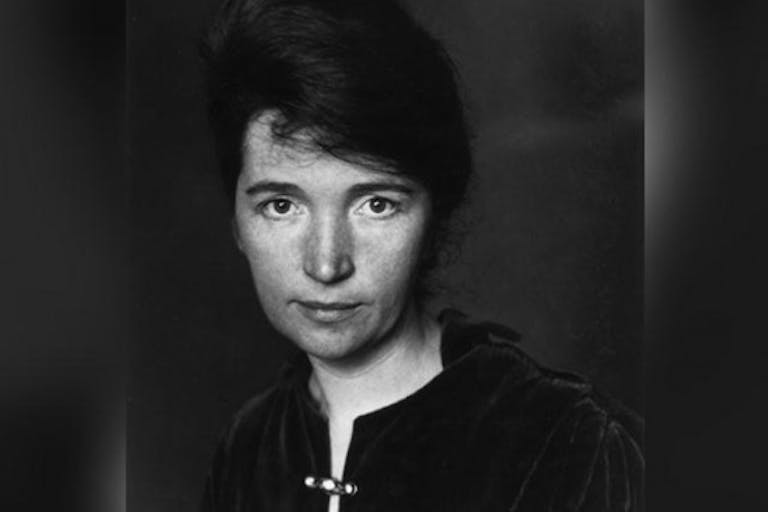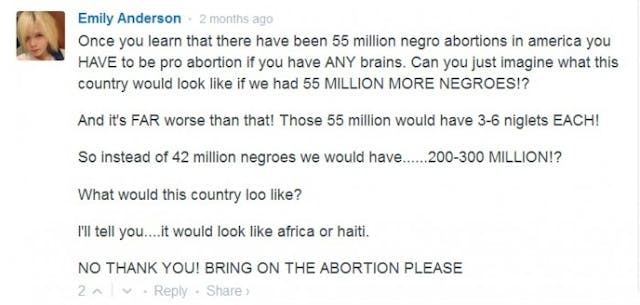
Abortionist calls pro-life laws ‘white supremacist’, ignoring abortion industry’s targeting of minorities
Anna Reynolds
·
Was Margaret Sanger racist? You be the judge about Planned Parenthood’s founder.
I like to think I’m a pretty easy guy to get along with. I’ve got some strong beliefs, but that doesn’t stop me from being friends with people who think differently. Still, my tolerance does have its limits. For example, if you say you’re attending a Klan rally this weekend, or start talking about how “colored Negroes” are afflicted with “ignorance” and “superstitions,” I’m going to feel uncomfortable.
That’s not necessarily true of Planned Parenthood, though. In fact, they might even name an award after you.
Planned Parenthood is America’s largest abortion chain, performing over three hundred thousand of them every year. It also gives out an award for “leadership, excellence, and outstanding contributions to the reproductive health and rights movement.” Described as Planned Parenthood’s “highest honor,” it was named for the group’s founder, Margaret Sanger.
That’s despite the fact that when it came to racial issues, some of Sanger’s ideas were, (ahem) controversial. Was she a racist? Let me share some facts about Sanger, and you be the judge.
It’s said you can know someone by the company they keep. Here’s what some of Margaret Sanger’s company looked like:
The Ku Klux Klan, founded in 1865, unleashed a savage campaign of terror against African-Americans. The Klan’s brutal history would have been known to Sanger; in 1915, screenings of a movie that glamorized it were followed by violence, including one incident in which a black teenager was murdered.
But that didn’t stop Sanger from attending a Klan event, something she recounted on page 366 of her autobiography. Reasoning that “any aroused group was a good group,” Sanger accepted a speaking invitation in 1926. Apparently they liked what she had to say as “a dozen invitations to speak to similar groups” followed.
Article continues below
Dear Reader,
In 2026, Live Action is heading straight where the battle is fiercest: college campuses.
We have a bold initiative to establish 100 Live Action campus chapters within the next year, and your partnership will make it a success!
Your support today will help train and equip young leaders, bring Live Action’s educational content into academic environments, host on-campus events and debates, and empower students to challenge the pro-abortion status quo with truth and compassion.
Invest in pro-life grassroots outreach and cultural formation with your DOUBLED year-end gift!
In addition to accusing African-Americans of being ignorant and superstitious, Sanger told an Euthenics Institute that she was “glad to say that the United States Government has already taken certain steps to control the quality of our population through its drastic immigration laws,” something she saw as a step towards “race betterment.” However, she complained that “while we close our gates,” there was “no attempt to discourage or cut down the rapid multiplication of the unfit and undesirable at home.”
Sanger’s supporters contend that none of these statements are proof of racism; I suspect anyone who said them today on a college campus would be quickly told otherwise. What can’t be denied, however, is that the group Sanger founded is being defended by people who wear racism as a badge of pride. That’s true on the white supremacist site Erasing Us, where pro-lifers are derided as “cuckservatives“- traitors to their race.
You can read how abortion isn’t “‘Black Genocide,’ it’s proactive crime control.” The comment section features statements from people like this:

And it turns out that Planned Parenthood isn’t above taking money from them. In 2008, Planned Parenthood officials in multiple states were willing to accept donations from callers who said they were angry about affirmative action and wanted to see black children aborted.

Aborting minority children is an activity Planned Parenthood seems to specialize in, something the group Protecting Black Life has demonstrated via a map. Combining data from the 2010 U.S. census with the location of Planned Parenthood facilities, it shows that a disproportionate number of clinics are located in or near minority areas. That helps explain how Planned Parenthood has managed to end over 14 million black lives since 1973. Getting a hand from the taxpayer hasn’t hurt either.
Planned Parenthood receives over half a billion dollars in federal funding every year, despite a host of scandals. If you’re not happy about that, then join Live Action in asking Congress to end Planned Parenthood’s subsidy and redirect that money to community health centers–places where people with limited means can find needed care.
Because whether or not you think Margaret Sanger’s views were racist, they definitely belong in the past. So does public support for the organization she founded.
Live Action News is pro-life news and commentary from a pro-life perspective.
Contact editor@liveaction.org for questions, corrections, or if you are seeking permission to reprint any Live Action News content.
Guest Articles: To submit a guest article to Live Action News, email editor@liveaction.org with an attached Word document of 800-1000 words. Please also attach any photos relevant to your submission if applicable. If your submission is accepted for publication, you will be notified within three weeks. Guest articles are not compensated (see our Open License Agreement). Thank you for your interest in Live Action News!

Anna Reynolds
·
Issues
Angeline Tan
·
Guest Column
Emily Berning
·
Opinion
Nancy Flanders
·
Opinion
Mark Wiltz
·
Opinion
Mark Wiltz
·
Human Interest
Adam Peters
·
Human Interest
Adam Peters
·
Opinion
Adam Peters
·
International
Adam Peters
·
International
Adam Peters
·